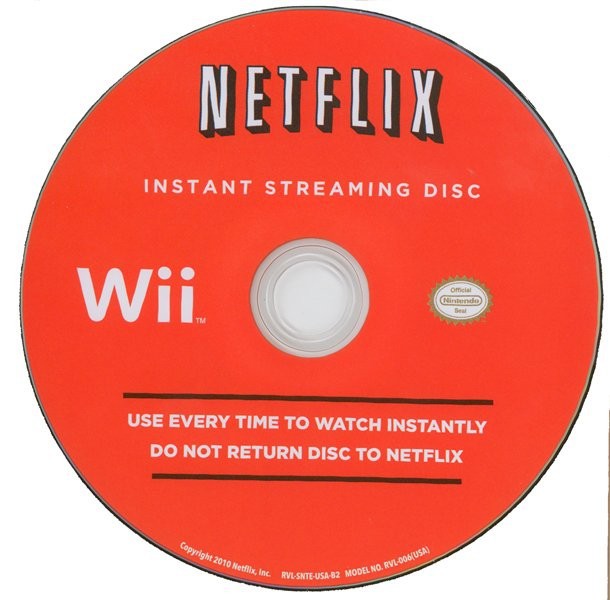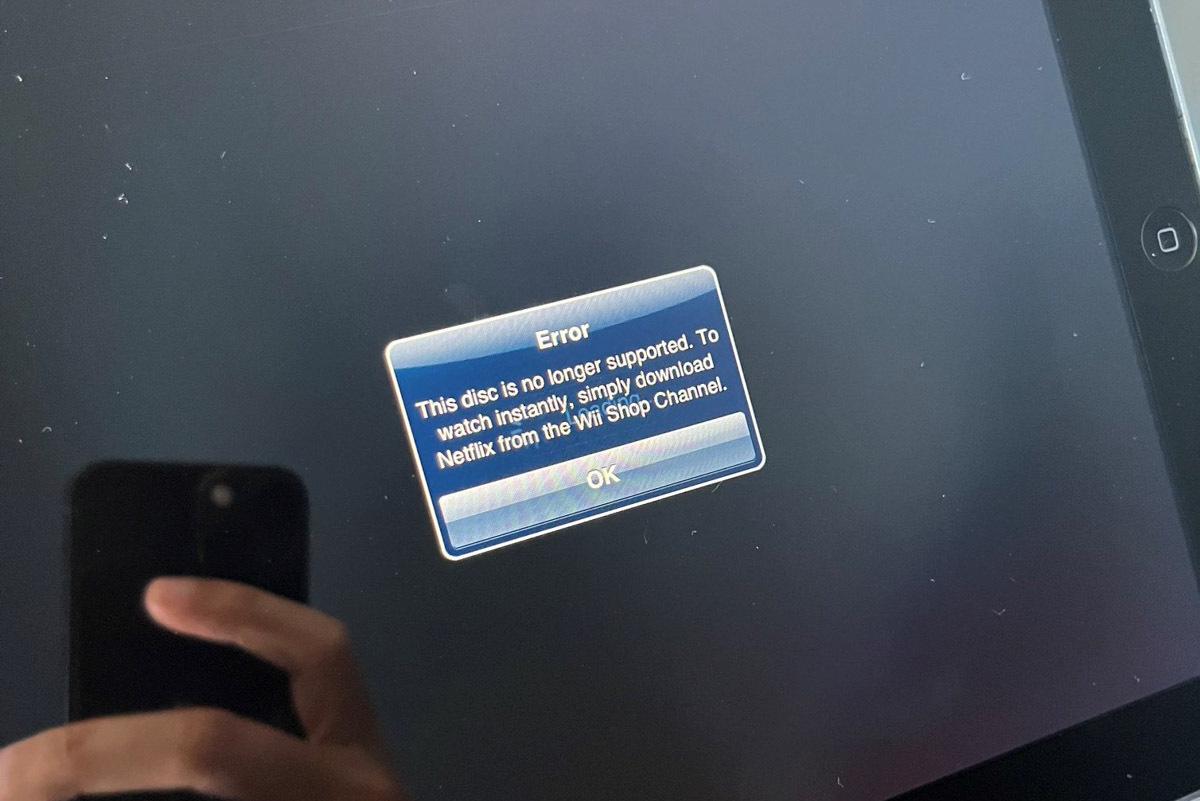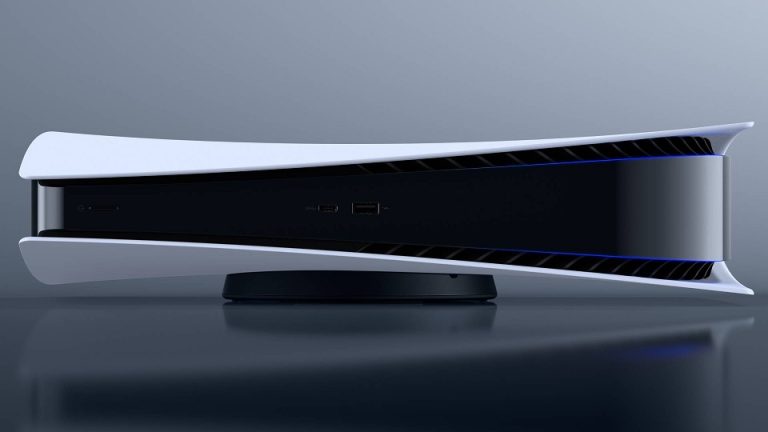An error message meant for the Nintendo Wii gathered attention online when it appeared on an unexpected device. Twitter user @fcbunn reported the strange phenomenon when trying to load a Netflix video on an old iPad. As for the reason it appeared, the answer may lie somewhere in the somewhat complicated history of the streaming service on game consoles.
iOS developer @fcbunn posted the peculiar error they came across on their iPad to Twitter on August 31, saying, “if you try to load a Netflix video on the first gen iPad (iOS 5.1.1) you see a Wii Shop error.” @fcbunn also included a screenshot that clearly shows a dialog box meant for the Wii. The error message states, “This disc is no longer supported. To watch instantly, simply download Netflix from the Wii Shop Channel.”
But why would the message be displayed in Netflix on an iPad? Along with the over 55,000 likes the tweet received, many speculated about what caused the unexpected message.
As for why such an error message exists in the first place, it likely stretches back to when Netflix began launching their service on game consoles in North America.
Netflix was originally founded as a DVD rental home delivery service in 1997. Unlike the streaming service they’re known as now, users at the time would rent DVDs from a website which would be mailed to their homes. The service would go on to cover the entire United States before transitioning to the current video-on-demand model in 2007. Along with this transition, Netflix began supporting game consoles of the time starting with the Xbox 360. Even without DVDs or Blu-ray discs, Netflix was becoming a service their users could enjoy as long as they had an online device.
Like today, the Xbox 360 version of Netflix was offered as a free download from the console’s storefront. However, Netflix applications on the Wii and PS3 required a special disc sent to subscribers be inserted in the console. This disc was required for Wii users to use Netflix for around 6 months between when the service launched on the console in the spring of 2010 until the application became available on the Wii Shop Channel.

Image Credit: Game Informer
These days, basically all services related to the Wii Shop Channel have come to an end. Support for Netflix and other video streaming services were discontinued on the Wii in January of 2019, so Netflix cannot be viewed on the console anymore.
The previously mentioned error message was meant to prompt users to download the Netflix application from the Wii Shop Channel instead of trying to use the disc. It’s thought that this message has been provided on the server side since 2010 after the Netflix disc was no longer needed. YouTuber Michael MJD checked what would happen if the disc was used in 2022 and received the same message that appeared on the iPad.
But why would an error message meant for the Wii appear on an iPad nowadays? In this case, the message appeared on a first-generation iPad which launched in 2010. Updates for the device stopped at iOS version 5.1.1, with it not being possible to download new apps from the App Store. Considering the factors like needing a first-generation device that already has Netflix installed, it’s a rare message that would only appear under certain conditions.
This is likely why even after multiple iPad releases and Netflix updates, the Wii message appearing on iPads went unnoticed by users and developers. And just 14 hours after @fcbunn posted the error message to Twitter, they followed up with an update showing that the message had been fixed. @fcbunn also added an apology to the Netflix developer who went and fixed the errant message, seeming to commend their efforts as a fellow developer.
An unnoticed error message trapped in time. While it’s odd to see “Wii” appear on an iPad like that, there are likely some readers out there who were surprised to hear the global streaming powerhouse Netflix had a special disc they sent to Wii users. With the rapid advancement of these services and devices, there’s something melancholy about a forgotten error message lost to time.
Written by. Nick Mosier based on the original Japanese article (original article’s publication date: 2022-09-02 12:51 JST)





